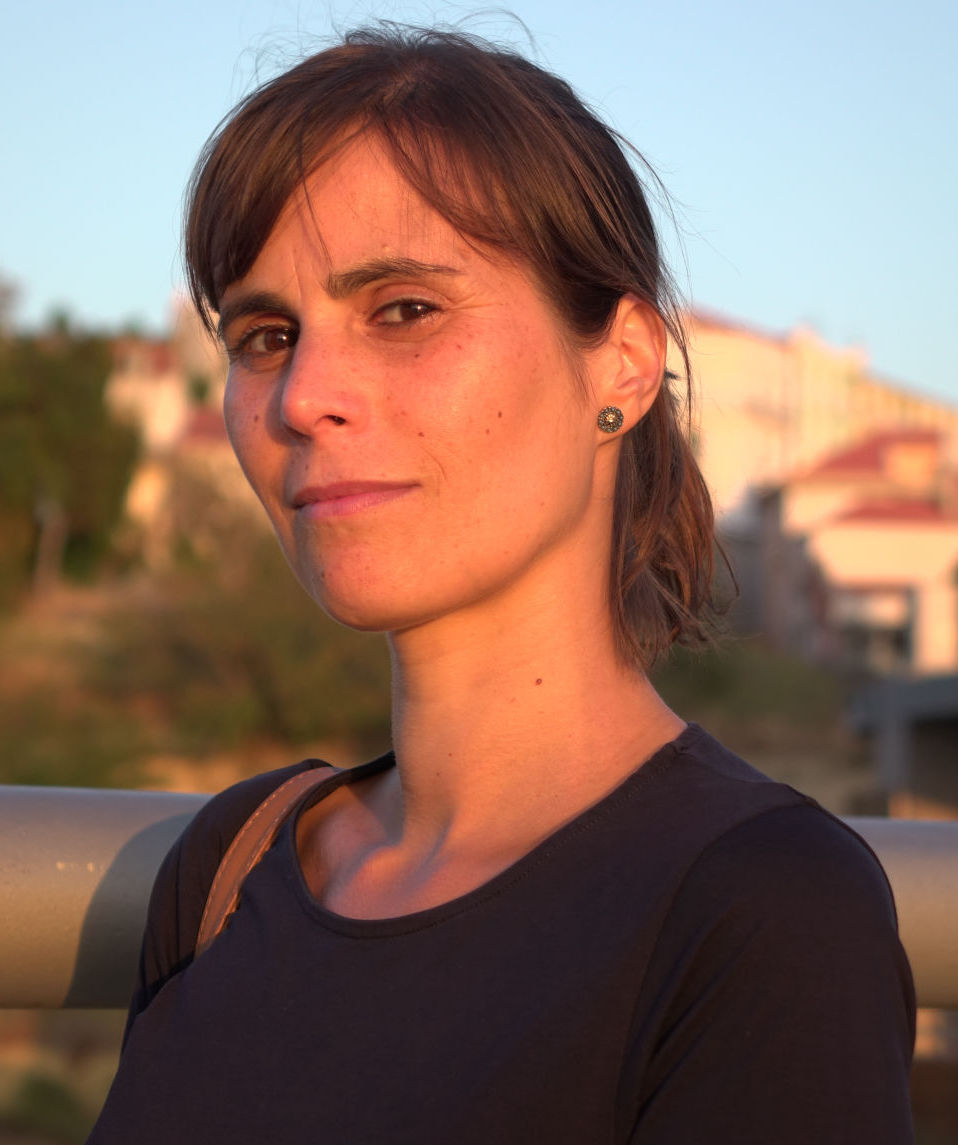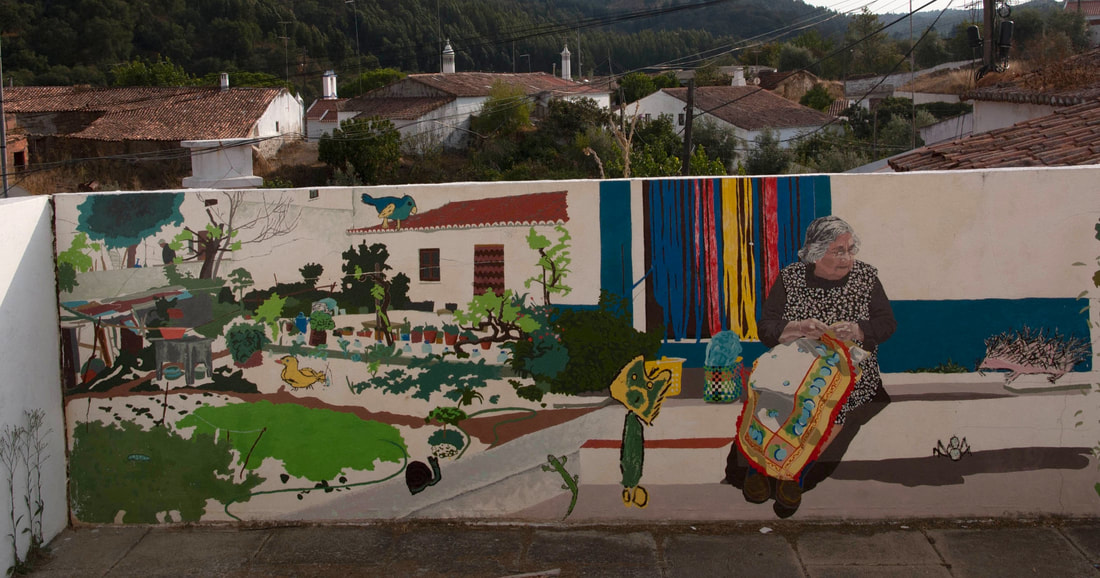The Transition Movement in Portugal: Achievements and Challenges
|
The research team and authors of this post (clockwise from top left): Anabela Carvalho (Minho University), Sofia Bento (Lisbon University), Lúcia Fernandes (Lisbon University), Maria Fernandes-Jesus (Instituto Universitario Lisboa).
The academic paper on which this post is based is available open access here. The research we would like to share with you was developed within the project COMPOLIS: “Communication and Political Engagement with Environmental Issues” (2013-2014). We were interested in exploring the ways in which the Transition movement was addressing climate change in its discourse, as well the opportunities created by the local Transition Initiatives for citizens to engage with social, political and environmental issues. Our empirical research involved the study of 16 Transition Initiatives through several moments of observational work and over 45 interviews with Transitioners. It also included around 30 interviews with citizens living in the areas of two Transition Initiatives, a rural and an urban one. Transitioners were very cooperative during all phases of our research and participants genuinely shared their feelings, perceptions, opinions and experiences with us, for which we are grateful. |
By mapping the views and practices of most Portuguese Transition Initiatives, our research contributes to understanding how the movement has migrated to and adapted to the Portuguese context. In this regard, it is clear that Transition Initiatives in Portugal have been expanding in number, with currently over 20 formal and non-formal Transition Initiatives across the country. Nevertheless, the movement has experienced several challenges since its inception in 2010. Some initiatives have had periods of stagnation and others have ceased functioning altogether. Indeed, some of the Initiatives created between 2010 and 2012 were not active when we conducted the research and others were undergoing restructuration. In contrast, several new Initiatives started gaining visibility and seem to be very active, even though they were not registered with the international Transition Network (e.g. Aveiro em Transição; São Luís em Transição; Famalicão em Transição, Covilhã em Transição; Lagos em Transição). The “Convergir” network brings together all the Transition Initiatives in Portugal as well as numerous others focusing on permaculture.
The core facilitating group in Transition Initiatives is typically composed of 3-5 people, mostly aged 30-45, with high levels of schooling (all interviewees had university degrees, including several with Masters and PhD degrees), and having experienced different forms of national and/or international mobility. The environmental crisis in its multiple facets is an important raison d’être for those involved in the movement in Portugal (many Transitioners actually have a professional connection to environmental issues). However, climate change is rarely evoked spontaneously as a key theme.
Local Transition initiatives carry out diverse activities in areas such as agriculture (with a widespread interest in urban gardens and in permaculture), traditional crafts (e.g. bee-keeping, knitting, jam-making) and food. Most organize talks and other types of meetings and offer various forms of training. However, based on extensive interviewing and observations, we can confidently say that the main challenge faced by local initiatives has been the mobilization and involvement of community members in an extensive and sustained manner.
The core facilitating group in Transition Initiatives is typically composed of 3-5 people, mostly aged 30-45, with high levels of schooling (all interviewees had university degrees, including several with Masters and PhD degrees), and having experienced different forms of national and/or international mobility. The environmental crisis in its multiple facets is an important raison d’être for those involved in the movement in Portugal (many Transitioners actually have a professional connection to environmental issues). However, climate change is rarely evoked spontaneously as a key theme.
Local Transition initiatives carry out diverse activities in areas such as agriculture (with a widespread interest in urban gardens and in permaculture), traditional crafts (e.g. bee-keeping, knitting, jam-making) and food. Most organize talks and other types of meetings and offer various forms of training. However, based on extensive interviewing and observations, we can confidently say that the main challenge faced by local initiatives has been the mobilization and involvement of community members in an extensive and sustained manner.
Our study revealed several ambiguities and contradictions within Transition Initiatives that may be hampering wider community engagement. Whereas most Transitioners view community building as their main goal, Initiatives seem not to actively consider diversity and power issues within communities nor how they affect people’s possibility of engaging in participatory spaces in egalitarian forms. As suggested above, Portuguese Transitioners are a mostly homogeneous social group with several mutually reinforcing traits and experiences. Since the environmental crisis, and especially climate change, affects the already disadvantaged groups the most, working with those groups is particularly critical in Portugal, a country that is highly vulnerable to climate impacts (as recently exemplified by a severe drought and tragic wildfires) and where significant sectors of the population have low levels of income and lack other crucial response resources.
Despite an emphasis on community action, we identified a tendency to consider individual responsibility for change as if it were independent from the power to act in relation to a number of structures. Besides, Transition’s discourses on community agency represent it as something detached from social, political and economic structures, and the movement displays a systematic avoidance of confrontation with existing political and economic powers (governments, corporations and the capitalist system as a whole).
We propose that, to effectively engage with communities, the movement could reinforce its participation in existing social structures, namely though engagement with local groups. In our study, trust emerged as an important aspect to both Transitioners and local inhabitants. Transitioners could strengthen relationships with groups already working in communities to avoid appearing like ‘outsiders’ with a ‘different agenda’ to local community members.
Investing thoroughly in participatory strategies is likely to lead to better engagement. Indeed, the most successful case that we came across was a project developed in a village where there had been a pro-active effort to map local inhabitants’ needs, aspirations, and wishes, and later to implement a number of them. The co-construction of community plans in a truly participatory manner should be attempted as widely as possible. In order to do that, organizing open meetings to which everyone in the community would be invited and advertising them more widely than is currently the norm would be recommendable.
Whereas there is no one recipe for long-term engagement, in order to fulfil its vision of the future, the movement cannot exist without a broader participation and a greater commitment of local communities, and therefore must continue to devise means and strategies for promoting this kind of engagement.
Despite an emphasis on community action, we identified a tendency to consider individual responsibility for change as if it were independent from the power to act in relation to a number of structures. Besides, Transition’s discourses on community agency represent it as something detached from social, political and economic structures, and the movement displays a systematic avoidance of confrontation with existing political and economic powers (governments, corporations and the capitalist system as a whole).
We propose that, to effectively engage with communities, the movement could reinforce its participation in existing social structures, namely though engagement with local groups. In our study, trust emerged as an important aspect to both Transitioners and local inhabitants. Transitioners could strengthen relationships with groups already working in communities to avoid appearing like ‘outsiders’ with a ‘different agenda’ to local community members.
Investing thoroughly in participatory strategies is likely to lead to better engagement. Indeed, the most successful case that we came across was a project developed in a village where there had been a pro-active effort to map local inhabitants’ needs, aspirations, and wishes, and later to implement a number of them. The co-construction of community plans in a truly participatory manner should be attempted as widely as possible. In order to do that, organizing open meetings to which everyone in the community would be invited and advertising them more widely than is currently the norm would be recommendable.
Whereas there is no one recipe for long-term engagement, in order to fulfil its vision of the future, the movement cannot exist without a broader participation and a greater commitment of local communities, and therefore must continue to devise means and strategies for promoting this kind of engagement.






